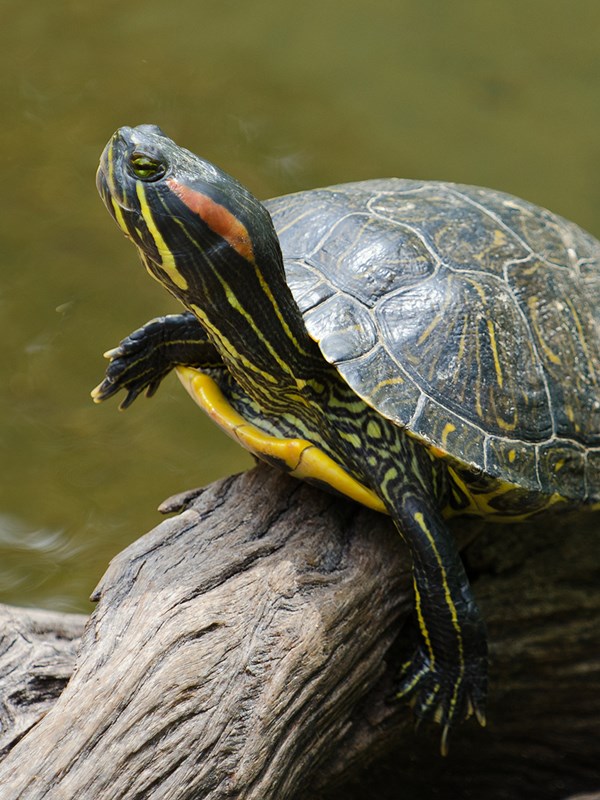
Red Eared Sliders
Scientific Name Trachemys scripta elegans
Native To Southern United States
Habitat Areas of still, warm water such as ponds, lakes, swamps and creeks
Diet Omnivore: invertebrates, crustaceans, small fish, insects, snails and aquatic vegetation
Size and Age Average length 8-37 cm (3-15 in); average weight 3 kg (approximately 7 lbs); average lifespan of 20-60 years
Natural History
The red eared slider is a small freshwater turtle that is easily identified by bright red stripes behind the eyes, and yellow stripes found on its skin. Turtles are ectothermic reptiles—meaning they are cold-blooded and unable to regulate their own body temperature. Red eared sliders are commonly found basking in sunlight on rocks and logs, or burrowed into the earth during the winter for brumation—a hibernation-like state for cold-blooded animals.
Least Concern

Conservation Status
Red eared sliders are on the list of 100 of the World’s Worst Invasive Alien Species. If they are let loose in a hospitable habitat they’re not native to, they can pose a significant threat to other turtles who are native. Red eared sliders will go on to invade the territory of native turtles and out-compete them for food, nesting and basking sites. For this reason, owners of red eared sliders should never release their pets into the wild.
Interesting Facts
- Red eared sliders get their name from the red stripe found behind their eye.
- During the winter, red eared sliders brumate—a phase in which they remain inactive under water or in a burrow, similar to hibernation.
- A turtle’s shell is made of keratin, which is the same protein that is in your hair and fingernails.
